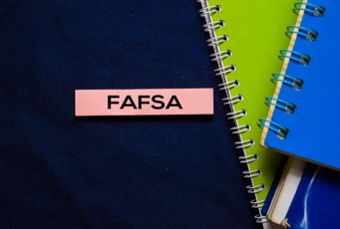
August is here and before long students will be off to college. If you have a college-bound student, you’ve already marked a lot of financial steps off your list, things like completing the financial aid forms, calculating the impact of any scholarship awards, and opening joint parent/student bank accounts. But have you investigated tax credits? You just might be able to recoup part of the cost of college.
Tax credits are often overlooked amid the scads of other items you need to complete prior to seeing your child off to school. While you won’t realize the benefits in real time, they can be a big help come tax time—if you’re eligible to claim them.
The Basics
Let’s start by defining a tax credit. A tax credit reduces your tax bill dollar-for-dollar. So, if you have a tax credit for $1,000 and a tax bill of $3,000, the amount you will owe Uncle Sam is $2,000. If your credit is greater than the amount you owe, you could receive the difference back in the form of a refund. This type of tax credit is called a refundable tax credit. Non-refundable tax credits can reduce your tax bill to $0, but that’s it. You won’t be eligible for a refund.
The American Opportunity Tax Credit (AOTC)
This tax credit is equal to 100 percent of the first $2,000 of any qualified education expenses you paid, plus 25 percent of the next $2,000. Your total credit could be $2,500. In addition, it is a refundable tax credit. If your tax bill is reduced to zero, you will be refunded 40 percent of the remaining credit amount (up to $1,000). To be eligible for a refund, you must:
- Be pursuing a degree or educational credential.
- Be taking classes at least half time.
- Not have completed your first four years of higher education at the beginning of the tax year.
- Not have a felony drug conviction.
- Not have claimed the AOTC or Hope credit for more than four tax years.
To claim the full credit, you must have a modified adjusted gross income (MAGI) of $80,000 or less as a single filer or $160,000 or less for those who are married filing jointly. You can receive a reduced credit amount if your income is less than $90,000 as a single filer or $180,000 for joint filers.
Lifetime Learning Credit
This credit is for 20 percent of the first $10,000 paid toward education expenses, capped at $2,000. Unlike the AOTC, there is no limit to the number of years you can claim the Lifetime Learning Credit. It’s also a nonrefundable credit, unlike the AOTC. You can reduce your tax bill to zero, but you will get nothing additional back. To qualify, the student must be:
- Enrolled at an eligible education institution for at least one academic period during the tax year.
- Taking courses to get a degree, education credential, or to get/improve job skills.
To claim the full credit, the tax filer must have a modified adjusted gross income (MAGI) of $57,000 or less as a single filer or $114,000 or less for married filing jointly. If your income is less than $67,000 as a single filer or $134,000 for joint filers, you may receive a reduced credit amount.
Who Gets the Credit?
Only the individual that is claiming the student as a dependent on their tax return can claim the AOTC or Lifetime Learning Credit. In most cases that will be the parent(s). However, if the parents’ income is above the income thresholds for the tax credits, they won’t be eligible to file for the credit. In this case, it may make sense for the student to file an independent tax return and not be claimed as a dependent on the tax return of the parent(s).
It’s also important to note that you can’t take the AOTC and the Lifetime Learning Credit in the same tax year for the same student. Depending on the specific circumstances, it is possible for parents to claim both credits for two different students.
Summary
While both tax credits can provide a benefit to the tax filer, the AOTC has a slightly higher cap and is also a refundable credit. The income limit required to file the AOTC is also higher. However, graduate students or students who are taking only a few courses will likely claim the Lifetime Learning Credit. Be sure to talk with your tax advisor about your specific situation to make sure you aren’t leaving any money on the table! Get the Bedel Blog
Recommended Articles
Think Your Student Loan Will Be Forgiven? Maybe Not!
For those choosing a career in the public service sector,...
529 College Savings Accounts - Does This Expense Qualify?
Do you know what post-high school educational expenses...





